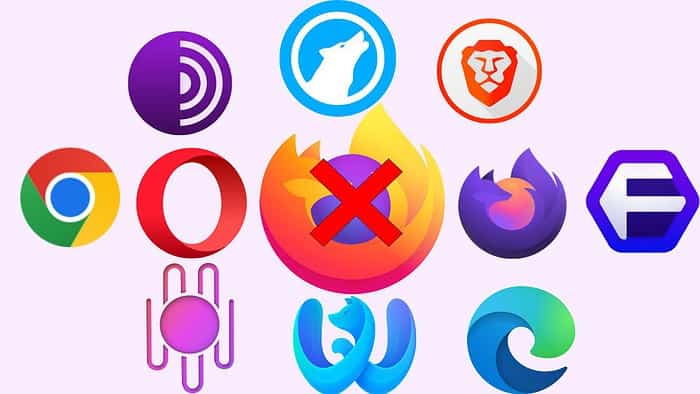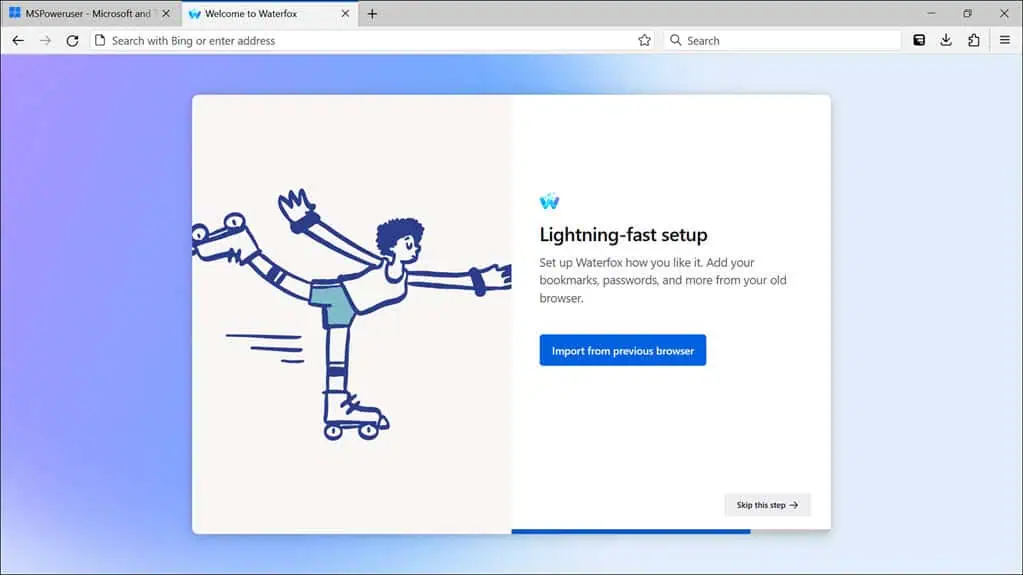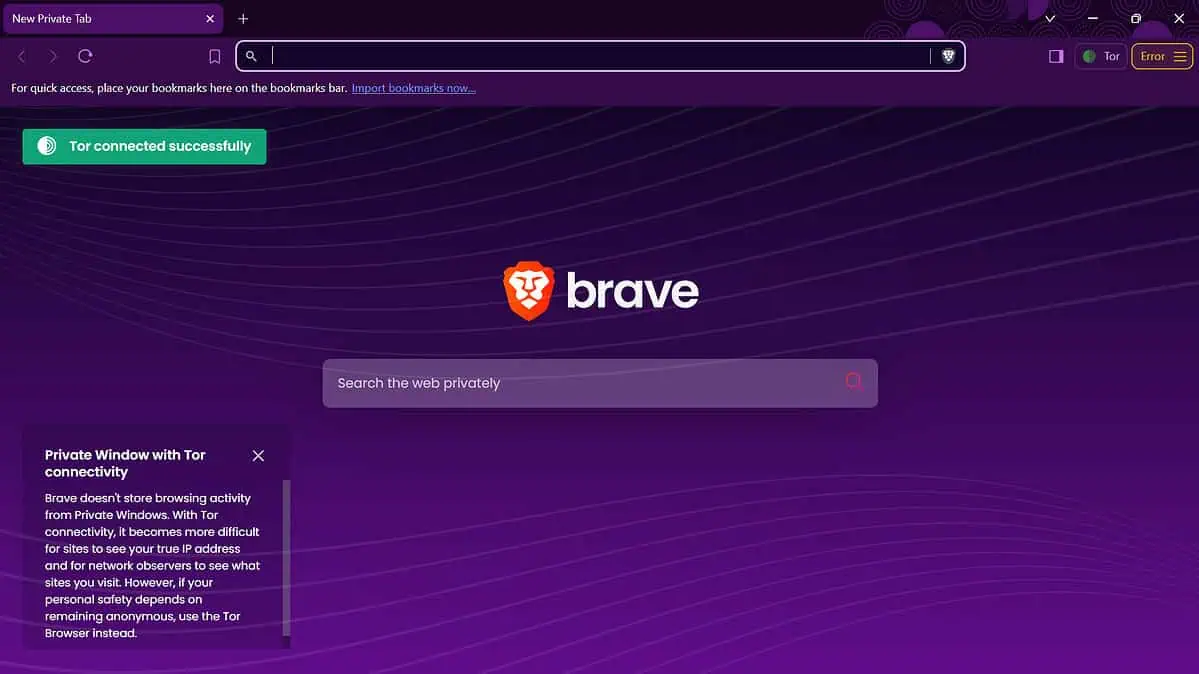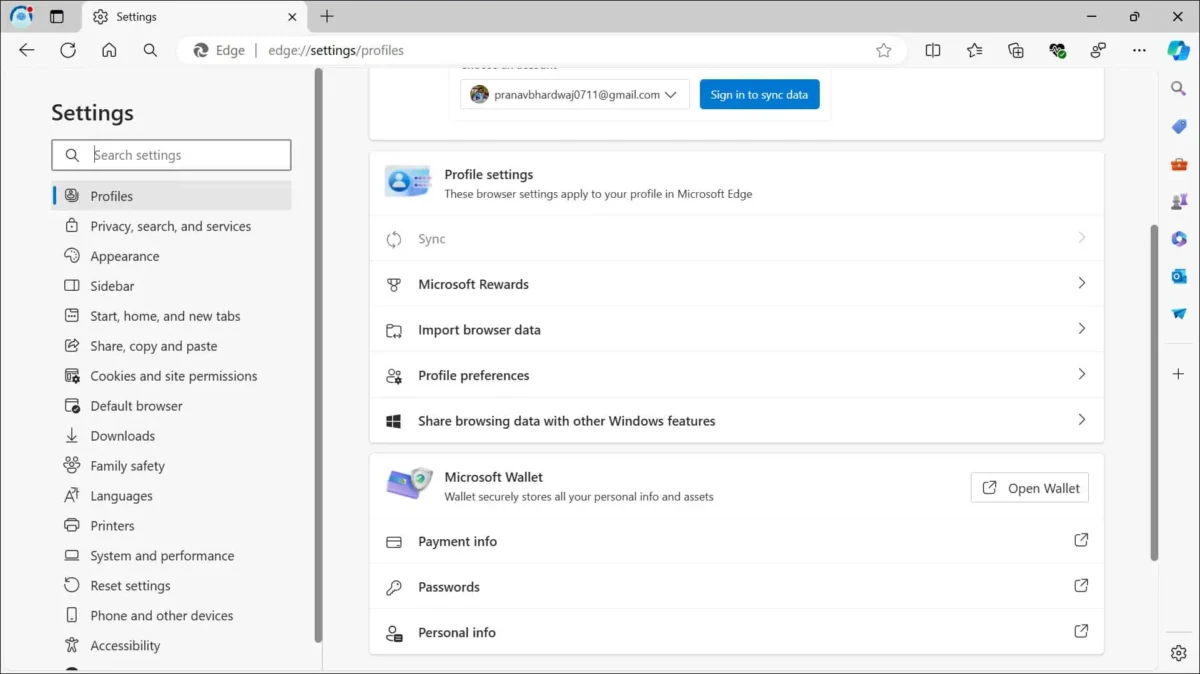Mozilla Firefox Alternative – 10 Secure and Versatile Options

If you’re looking for the best Mozilla Firefox alternative, I’ve tested over 20 of its competitor browsers to help you.
I’ve been using Firefox for a long time, but recently, I encountered some performance and privacy issues, along with compatibility limitations. These problems made me look for better alternatives.
In my search for a perfect browser that also matches core Firefox features, I tested 25 options based on performance, ease of use, features, privacy, and other factors.
Here’s the list of the best ones:
Best Mozilla Firefox Alternative
1. Opera Browser

Opera is among the most popular browsers, and for good reason. I found it the best Firefox alternative because of its range of features and smooth browsing experience.
A standout feature of Opera is the built-in unlimited VPN, perfect for more private and unblocked browsing. On Firefox, you require an additional VPN extension or a dedicated app for the same function.
Apart from that, Opera comes with an ad and tracker blocker, paste protection, battery saver, tab snoozing, converters, and more, making it an all-in-one option for both regular and power users.
Opera uses fewer system resources than Firefox, thereby reducing the strain on your computer even if multiple tabs are active. However, it lacks Firefox’s advanced customization options. Users who like to personalize their browsers might have to use extensions on Opera. And being a Chromium-based browser, it supports all extensions from the Chrome Web Store.
I’d use Opera over Firefox any day for its better privacy and less RAM usage.
| Pros | Cons |
|
|
2. LibreWolf Browser

If you like using Firefox but have issues with it because of its lack of privacy, LibreWolf is your best alternative.
It’s a fork of Firefox that focuses on privacy and security by stripping down the telemetry and data collection features. You’ll also see uBlock Origin, a robust ad blocker, pre-built into the browser.
One thing I particularly like about LibreWolf is that it automatically clears cookies and other website data when you exit the browser. It only offers privacy-focused search engines like DuckDuckGo.
In addition, you’ll get Total Cookie Protection, an anti-fingerprinting solution, forced HTTPS, and more.
The lack of telemetry means you won’t get data-driven improvements and troubleshooting. It’s an open-source project, so sometimes the browser might not feel as tightly finished as Firefox, which is also open-source but backed by Mozilla.
Regardless of that, you should definitely go for LibreWolf if you love using Firefox, but with enhanced privacy and security.
| Pros | Cons |
|
|
Try LibreWolf on: Windows | Mac | Linux
3. WaterFox Browser

WaterFox is another Firefox fork that provides high-performance browsing.
It’s particularly useful for people who like to use old Firefox add-ons. The support for both legacy and modern Firefox extensions allows for better customization and makes WaterFox more useful than Firefox.
Like LibreWolf, WaterFox doesn’t collect telemetry data to ensure your privacy. It also has built-in anti-trackers and ad blockers.
On WaterFox, you can launch the private tab within your main window. It also makes it easy to import data from your current browser, like bookmarks or browsing history.
In terms of performance, the WaterFox is on par with Firefox. However, it doesn’t receive updates as frequently as Firefox. Overall, if you need a bloat-free and more privacy-focused Firefox experience, WaterFox should be your choice.
| Pros | Cons |
|
|
Try WaterFox on: Windows | Mac | Linux | Android
4. Floorp Browser

Floorp is another Firefox alternative with better customization, privacy, and lesser impact on the system. I really liked its UI, which is a breeze because of its minimalistic design and straightforward navigation.
You can also make some customization to the UI as per your preference. It’s a no-nonsense service that focuses only on making browsing better and more comfortable. Additionally, it prevents unauthorized data collection, blocks ads, and trackers, and doesn’t collect telemetry data.
Finally, you get fewer advanced features than Firefox, but I consider this an advantage because I like my browsers simple, fast, private, and secure. And Floorp ticks all these boxes.
| Pros | Cons |
|
|
Try Floorp on: Windows | Mac | Linux
5. Pulse Browser

If you’d like to be more productive online, Pulse is an ideal browser that will also give you the feel of Firefox. It comes with features such as tab grouping and a task manager to help you stay organized.
Pulse is also a more privacy-focused browser than Firefox, with its built-in VPN and adblocker, similar to Opera. Basically, Pulse has many built-in features for which you’d require extensions on Firefox.
Though it doesn’t allow Firefox-level customization and extension support, I recommend Pulse for productive and private browsing.
| Pros | Cons |
|
|
Try Pulse Browser on: Windows | Mac | Linux
6. Firefox Focus

Firefox Focus is a privacy-centric version of Firefox developed by Mozilla for Android and iOS devices.
It focuses on speed and privacy by automatically blocking ads and trackers. You can quickly delete your browsing data with a tap on the erase button in the search field.
Private mode is really “private” on Firefox Focus, unlike most popular browsers that also keep track of you in incognito mode.
I find it more of a secondary browser for my smartphone rather than a full-fledged one. You can use it for specific tasks like online banking, monetary transactions, or things you like to keep private. Compared to the regular Firefox browser, it’s minimalistic and faster but has very few additional features.
| Pros | Cons |
|
|
Try Firefox Focus on: Android | iOS
7. Brave Browser

If you prefer an entirely different experience from Firefox, you can use the Brave browser. It’s a Chromium-based option that focuses on privacy and security. Brave blocks ads and trackers by default and offers a unique reward system that allows users to earn cryptocurrency by viewing privacy-respecting ads.
In my experience, Brave is faster and less resource-intensive than Firefox. However, it offers fewer customization options than Firefox, and its extension library, while substantial, doesn’t match the variety available for Firefox.
| Pros | Cons |
|
|
Try Brave on: Windows | Android | Mac | iOS | Linux
8. Microsoft Edge

Microsoft Edge has left behind the criticism it used to face and is now one of the most used browsers.
Since it’s switched to the Chromium engine, it has become fast and feature-rich. If you’re a Windows OS user, switching to Edge will be beneficial as it’s deeply integrated with Windows.
Since it’s Chromium-based, it supports a wide range of extensions available on the Chrome Web Store. Plus, it also has its own add-ons available on the Microsoft Store.
On Windows, Edge is particularly efficient compared to Firefox and consumes fewer system resources. Features like Collections and Vertical tabs enhance productivity. However, Edge lacks privacy as data is shared with Microsoft to provide improved and personalized services.
| Pros | Cons |
|
|
Try Microsoft Edge on: Windows | Android | Mac | iOS
9. Google Chrome

Google Chrome is the most popular browser on the internet. It’s known for its huge library of extensions, customizability, and speed.
It’s built on the Chromium engine and is developed and maintained by Google. It comes with a list of amazing features that not only enhance your web browsing but also things like managing passwords, running antimalware scans, and more.
Compared to Firefox, it’s miles ahead in features and add-on support . However, Chrome is too resource-hungry and slows down your computer. I have stopped using it on one of my low-end devices, which has 8 GB RAM.
Other than that, it’s often criticized for its data collection practices in the name of improving user experience. So, choose Chrome if you have a high-spec device and you aren’t bothered much about the data you share with Big Tech.
| Pros | Cons |
|
|
Try Google Chrome on: Windows | Android | Mac | iOS
10. Tor Browser

Lastly, there’s the Tor browser, popularly used for anonymous web browsing or as a gateway to the deep web.
It routes your internet traffic through the Tor network, making it difficult for third parties to trace your online activity. It is also a Firefox-based web browser but with additional security and privacy features.
On Tor, you get the highest level of anonymity, but at the cost of your browsing speed. Since traffic is routed multiple times, getting a proper browsing speed is only possible if you have a very high-speed internet plan. It also consumes more system resources than Firefox.
So, only switch to Tor if your work requires total anonymity and you have high-speed internet.
| Pros | Cons |
|
|
Try Tor on: Windows | Android | Mac | iOS | Linux
How to Choose the Best Mozilla Firefox Alternative
Choosing the best Firefox alternative depends on what you require from your browser. Here are the various factors for your reference:
- Privacy: If you like to browse without sharing your data and storing your browser history, choose one either Opera, LibreWolf, Firefox Focus, or Tor Browser. These come with enhanced privacy features and collect minimal data compared to others.
- Performance: If you prefer performance over anything else, choose options like Brave, Opera, and Google Chrome for their fast and efficient browsing and downloading speeds.
- Customization: If you like to customize your browser according to your preferences, WaterFox or Floorp should be your choice.
- Resource Usage: If you need a browser to run on your low-end device, a browser that uses minimum system resources should be your priority. Services like Opera, Floorp, and Pulse are best in this case.
- Extension Support: If you like to experiment with your browser and require different types of extensions for it, you need a browser that supports a large range of add-ons and. There’s no better browser than Google Chrome for that, but Edge and Brave aren’t far behind.
Summary
So, these are the 10 best options if you are having issues with the Firefox browser and need to replace it. Read their comparison? based on my personal experience, and select the one that best suits your requirements. To simplify your decision, here’s a comparison table of all the browsers with Firefox.
| Browser | RAM Usage (MB) | CPU Usage (%) | Privacy Rating | Customization | Speed |
| Mozilla Firefox | 700 | 3 | High | High | Moderate |
| Opera | 500 | 2 | High | Moderate | High |
| LibreWolf | 600 | 2.5 | Very High | High | Moderate |
| WaterFox | 550 | 3 | High | High | Moderate |
| Floorp | 400 | 3 | Very High | Low | High |
| Pulse | 450 | 1 | High | Low | High |
| Firefox Focus | 300 | – | Very High | Low | High |
| Brave | 450 | 2 | Very High | Moderate | High |
| Microsoft Edge | 500 | 3.5 | High | High | High |
| Google Chrome | 800 | 4 | Low | High | High |
| Tor | 650 | 3 | Extremely High | Low | Low |
To summarize, here are my best Mozilla Firefox alternative suggestions:
- Best for Privacy: Firefox Focus, Tor Browser, Opera
- Best for Performance: Brave, Opera, Google Chrome
- Best for Customization: WaterFox, LibreWolf
- Best for Features: Opera, Microsoft Edge
I hope this guide helped you in replacing Firefox with another top browser that suits your needs.
Read our disclosure page to find out how can you help MSPoweruser sustain the editorial team Read more




User forum
0 messages